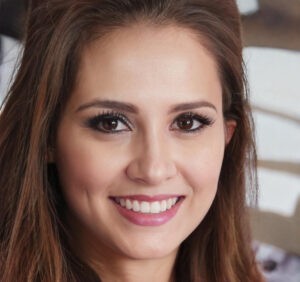
Unraveling the Mystery: Hyperactivity in Young Children’s Sleep
The serene image of a child sleeping soundly is a common parental aspiration. However, some parents find themselves confronted with a puzzling phenomenon – hyperactivity in their young children’s sleep. The notion of restful slumber disrupted by moments of restlessness raises questions about the underlying causes and potential implications. In this essay, we delve into the complex world of sleep hyperactivity in young children, exploring its origins, potential factors, and the significance it holds in understanding children’s sleep patterns.
The Spectrum of Sleep Behavior: Variability in Young Children
Sleep is far from a static state, especially in young children whose sleep behavior can vary widely:
- Sleep Cycles: Sleep comprises various cycles, including REM (rapid eye movement) and non-REM phases. These cycles contribute to a dynamic sleep experience.
- Transition Phases: As children transition between sleep cycles, brief awakenings are common, often leading to movements or shifts in position.
Understanding Parasomnias: Unraveling Sleep Disorders

Hyperactivity during sleep often falls under the category of parasomnias – disruptive sleep behaviors that occur during specific sleep stages:
- Night Terrors: A subset of parasomnias, night terrors, can manifest as intense episodes of fear, agitation, and physical movement during deep sleep phases.
- Sleepwalking: Sleepwalking involves physically moving around during sleep, often triggered by transitions between sleep cycles.
Potential Factors Influencing Sleep Hyperactivity
Several factors contribute to hyperactivity during sleep in young children:
- Maturation of Nervous System: A child’s nervous system is still developing, leading to occasional disconnects between sleep cycles and brief awakenings.
- Stress and Anxiety: Emotional factors like stress or anxiety can manifest during sleep, causing moments of hyperactivity or agitation.
- Genetic Predisposition: Some children may have a genetic disposition to sleep disorders, which can lead to nighttime restlessness.
Cognitive and Emotional Implications: The Connection to Development
Hyperactivity during sleep can offer insights into a child’s cognitive and emotional development:
- Memory Consolidation: Sleep plays a crucial role in memory consolidation. Hyperactivity might indicate the brain’s active engagement in this process.
- Emotional Processing: Sleep is vital for emotional regulation and processing. Hyperactivity during sleep could relate to the child’s emotional experiences and maturation.
Addressing Concerns: Parental Roles and Professional Guidance
Parents often grapple with concerns about their child’s sleep hyperactivity:
- Observation: Careful observation of sleep patterns and behaviors can provide valuable information to determine whether the hyperactivity is within a normal range.
- Consulting Experts: If sleep hyperactivity becomes excessive or interferes with a child’s well-being, consulting a pediatrician or sleep specialist can offer tailored insights and recommendations.
Conclusion
The phenomenon of hyperactivity during sleep in young children reveals the intricacies of their developing brains and emotions. Rather than solely viewing this behavior as disruptive, it is essential to recognize its significance in the broader context of sleep patterns and overall development. By understanding the potential factors and implications of sleep hyperactivity, parents can navigate this aspect of their child’s sleep journey with greater insight and awareness. As science continues to shed light on the complexities of sleep behavior, we move closer to unraveling the mysteries that unfold during the hours of slumber, contributing to a more comprehensive understanding of the young mind at rest.
 Mattie Hubbard is a distinguished figure in the field of sustainable agriculture, known for her innovative approaches to environmentally friendly farming practices. With a deep-rooted passion for the earth and a commitment to ecological balance, Mattie has become a leading voice in promoting sustainable methods that benefit both the environment and the farming community. Her work often involves integrating traditional agricultural knowledge with modern techniques to create systems that are both productive and sustainable.
Mattie Hubbard is a distinguished figure in the field of sustainable agriculture, known for her innovative approaches to environmentally friendly farming practices. With a deep-rooted passion for the earth and a commitment to ecological balance, Mattie has become a leading voice in promoting sustainable methods that benefit both the environment and the farming community. Her work often involves integrating traditional agricultural knowledge with modern techniques to create systems that are both productive and sustainable.
